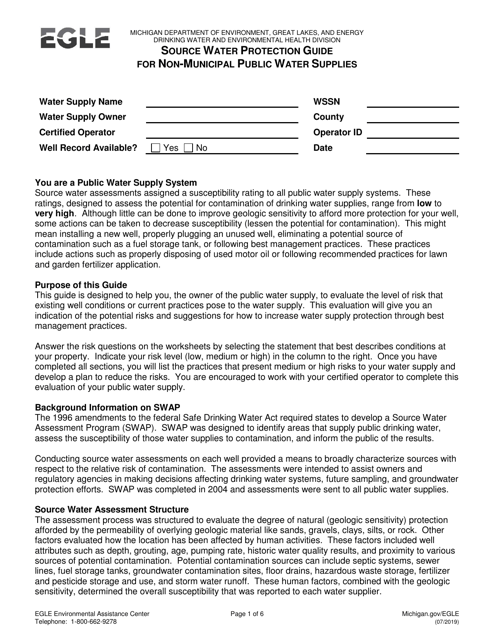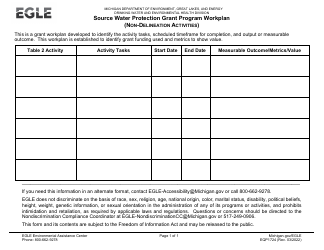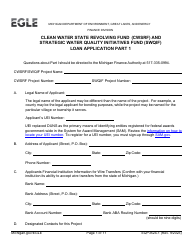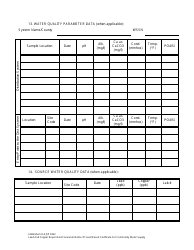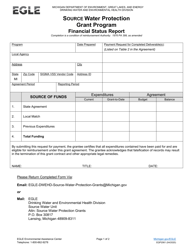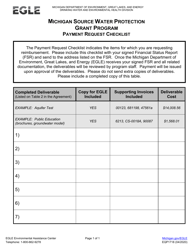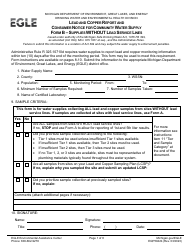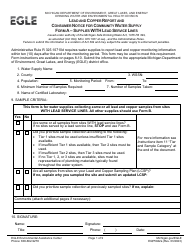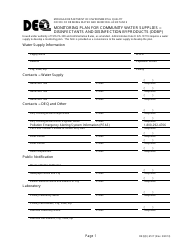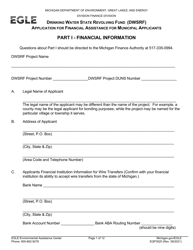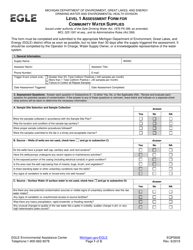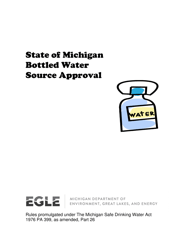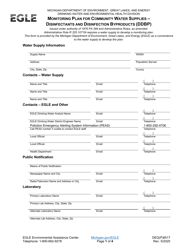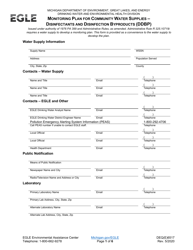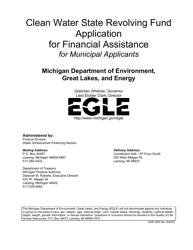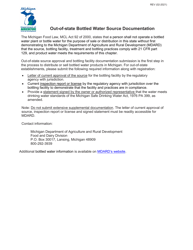Source Water Protection Guide for Non-municipal Public Water Supplies - Michigan
Source Public Water Supplies is a legal document that was released by the Michigan Department of Environment, Great Lakes, and Energy - a government authority operating within Michigan.
FAQ
Q: What is a non-municipal public water supply?
A: A non-municipal public water supply is a water system that serves at least 25 people and is not owned or operated by a municipality.
Q: What is source water protection?
A: Source water protection refers to the activities and efforts to prevent contamination of drinking water sources.
Q: Why is source water protection important?
A: Source water protection is important to ensure the safety and quality of drinking water.
Q: What are potential sources of contamination for non-municipal public water supplies?
A: Potential sources of contamination include agricultural runoff, septic systems, and chemical spills.
Q: What are some strategies for source water protection?
A: Strategies include land use planning, education and outreach, and implementing best management practices.
Q: Who is responsible for source water protection?
A: Multiple stakeholders including water suppliers, government agencies, and the public have a role in source water protection.
Q: Are there regulations in place for source water protection?
A: Yes, there are regulations at both the state and federal level to protect drinking water sources.
Q: What can individuals do to help protect source water?
A: Individuals can properly dispose of hazardous materials, conserve water, and participate in local source water protection programs.
Form Details:
- Released on July 1, 2019;
- The latest edition currently provided by the Michigan Department of Environment, Great Lakes, and Energy;
- Ready to use and print;
- Easy to customize;
- Compatible with most PDF-viewing applications;
- Fill out the form in our online filing application.
Download a fillable version of the form by clicking the link below or browse more documents and templates provided by the Michigan Department of Environment, Great Lakes, and Energy.
